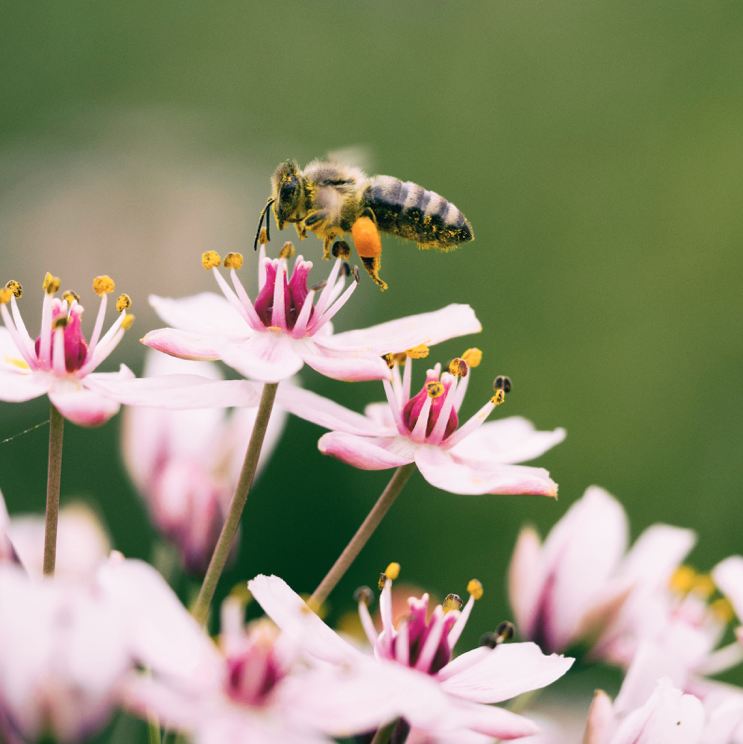
The Best Plants for Pest Control

You don’t necessarily need insecticides, pesticides and other types of pest control, when you know how to use nature to take care of your plants.
By strategically placing plants capable of repealing insects, you can keep your plants and your family healthy and safe from pesky insects that could otherwise destroy your beloved plants, flowers, and vegetables, or create irritation or even illness.
The Organic Way to Keep Pests Away
Although there are so many pest control options for sale in garden centres and hardware shops, many of which are organic, having to apply it and keep up the maintenance, is not only time consuming, it is also quite pricey.
The goal of using plants as an organic solution to keeping pests away is a technique not just used to protect other plants from pests. Such plants can also enrich the soil and encourage bees and butterflies into the garden.
Known as companion gardening, this method is achieved by growing two or more plants next to one another. The plant, or plants, being used to repel pests can do so by either being the actual repellent, or by attracting predators into the garden which will in turn take care of your average garden pests.
By using companion plants, your garden can just about maintain itself, in terms of keeping the pests at bay. Companion planting is quite a common practice of organic gardening, and it is quite a successful practice that goes back many years.
A lot of information about this style of gardening is based on hearsay rather than scientific evidence. But, for the most part, traditional gardeners are filled with useful knowledge which has been passed down from generation to generation. As such, they know which plants work well alongside others.
Not everyone agrees that companion gardening actually works, but look on the bright side. Even if it doesn’t work as you expected, at least you will be benefiting from having a stunning, diverse garden.
To get going with companion gardening, you need to understand that the approach is a little bit of trial and error. The plants that work wonderfully in one area might not be able to grow so well in others. If you are planting from seed, there is the issue of having to wait until the plant is big enough to work as a protector of the other plants.
Companion gardening is not the only method for using plants to keep pests away. If you are looking to use plants on a balcony or in your home to deter bugs, you can always plant in pots and place these pots close to wherever you need them.
Which are the best plants for pests?
The plants you choose can serve two purposes; one being repelling and the other being attracting. Remember, it’s not just about the plant getting rid of insects on its own, it’s also about attracting the good guys into your garden.
Another thing to keep in mind, is that insects tend to come in waves. In autumn and winter, you might notice that only a few bugs are hanging around, while in the spring and summer months, you seem to have an onslaught on your hands.
To handle this, you need to be diverse with your planting.
Have some plants that flower in the winter and others that come to life in the summer. This way, you have all of your bases covered and you’ll be ready for anything.
And organic pest control can also benefit your own life. There are plenty of plants that are able to keep flies and mosquitoes away from your home, and are the organic solution to smelly insect sprays that just never seem to keep the insects away for very long.
That said, here are the best plants you can have:
- Lavender
This fragrant herb bush can be bought in any garden shop, and when given the space to grow, the good balance of sunlight and shade, and the occasional watering, not only will it fill your home with a divine smell, but it will help to keep away flies, fleas and mosquitoes. Be sure to plant it close to an entrance to enjoy all of the benefits.

- Citronella
Having a citronella plant, which can be grown in a pot and kept inside of the house, is a must for anyone living in a mosquito area. These bugs absolutely hate citronella and one of the great things about the plant is that it grows fairly quickly.

- Marigolds
With its gorgeous yellow and orange flowers, marigolds are absolutely hated by aphids and loved by every vegetable patch grower. Marigold leaves and flowers are the perfect repellent and they can be grown in between your other plants, so long as they are given enough sunlight. Since they are quite small plants, you won’t have to worry about them taking up too much space. Marigolds can be easily grown from seeds, sown directly into the soil, making it quite easy to grow a border of protective flowers around your beloved plants.
Marigolds can also protect your garden from eelworm/nematodes, mosquitoes, and fruit flies.

- Petunias
Another fantastic option for keeping harmful insects away, petunias will add a vibrant pop of colour to any garden. These plants are really easy to maintain and can be grown alongside marigolds to create the ultimate ring of protection. Petunias require minimal maintenance and quite a lot of sunlight.

- Rose Scented Geranium
Beetles can wreak havoc in gardens, and especially in vegetable patches. Sometimes, these insects are so small it is impossible to spot them with the naked eye but by planting rose scented geraniums, you can keep away even the smallest of troublesome beetles, all while enjoying the sight and scent of such a beautiful plant. This flower also does well to protect gardens from cabbage flies.

- Fennel
Useful in both the kitchen and the garden, fennel can be grown to keep away snails and slugs that feast on plant leaves. This herb is generally grown in a vegetable patch, to protect the veggies from these damaging invaders, but you can just as easily grow it in between some flowers as the leaves of the fennel plant are quite attractive and so they won’t affect the look of your garden.

Interested in reading more, click on the below:
Feeling pestered? Let The Pot Shack help guide you on the best pot filled and pest free garden.




2 comments
How could one kill snails without killing glowworms or bromeliads. I mean kill 99.9% of snails.
I fear if the poison gets into bromeliads’ tanks…..
I fear glowworm larvae eating the snails….
Karen
I am interested in the plantd
Hendrik Fourie
Leave a comment
This site is protected by hCaptcha and the hCaptcha Privacy Policy and Terms of Service apply.